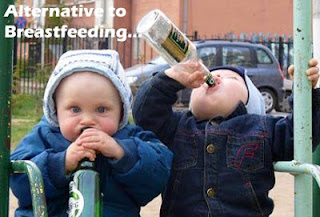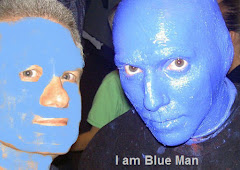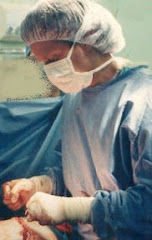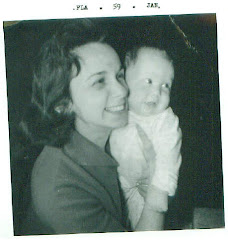Sunday, October 28, 2012
Breast Feeding Public Service Announcement
Pose and Strut
Back to studying. I'm sure I'll get pimped about some useless topic on rounds.
Oh hell, I'll just let the overachiever answer it.
Wednesday, October 24, 2012
Bad Rules
He returns to work and tells everyone about the "stolen" scrubs he saw everywhere (We have a anti-stealing scrub device that checks out scrubs to each person by their ID badge)
Decides to forbid all scrubs outside the hospital due to possible infection spread and how would it look to outsiders who get surgery and have seen the scrubs in the outside dirty world (they are mostly unconscious or can't remember who they saw, let alone what they were wearing)
So another dumb rule. Particularly when you see surgeons wearing their horse dung covered boots with no covers into the OR for surgery. It's shocking how retarded this system can be sometimes.
Sunday, October 21, 2012
Just do it!
I cannot do everything, But still I can do something;
And because I cannot do everything,
I will not refuse to do the something that I can do.
Godly Healing
- Practicing compassionate presence—i.e., being fully present and attentive to their patients and being supportive to them in all of their suffering: physical, emotional, and spiritual
- Listening to patients' fears, hopes, pain, and dreams
- Obtaining a spiritual history
- Being attentive to all dimensions of patients and their families: body, mind, and spirit
- Incorporating spiritual practices as appropriate
- Involving chaplains as members of the interdisciplinary health care team
Friday, October 19, 2012
Confused
I have no clue where to go on the first day, who to report to or what to wear. Sadly, this isn't the first time and more likely the result of a real problem of too many chiefs, too little communication between them and individual "kingdoms" of power, rules and processes that are not easily given up.
Uniform rules? Appropriate training and instruction? Clear failure and success paths? Adult educational theory integration? Humility? Compassion? Recognition of....? Oh never mind. This has been broken for way to long and those in charge don't know it's broke, have no motivation to fix it, and are way to ego inflated to even care.
So we just do what we have to do to survive it, and make sense of it long after we leave with our dysfunctions into the real world. Is it any wonder that the average physician leaves his first job within five years? When you leave residency this messed up about organizations, it's no wonder at all.
So I'll go to wherever the wind takes me on the first day, and I'll likely have to apologize to someone for my error, confusion and hysteria. Better to ask for forgiveness later than ask for help now. And besides the former is way more fun.
Shame! Self-stigmatisation as an obstacle to sick doctors returning to work
But I see it everyday. Sick, sick clinicians coming to work out of pressure to do so...to man-up (or woman-up) and come no matter what. I'm sure at least one patient has been affected directly or indirectly by a "sick" physician in training.
A small study that looked at doctors returning to work after grappling with physical or mental illness found that those physicians perceived a lack of support from their colleagues in a recent BMJ publication: http://bmjopen.bmj.com/content/2/5/e001776 . The study completely confirms my gut feelings that this phenomenon exists and is a real problem in U.S. medical training programs today.
But even those providers that practice evidence based medicine are unlikely to follow evidence based evidence as to themselves. It's one of those paradoxes in the way we practice and teach the practice of medicine to others.
I guess for the moment I'll man-up and despite my fever, sinus infection, recent outbreak of cavitary pneumonia and pustular rash...I'll go back to work in the AM. Wouldn't want to be seen the weakling among my strong, virile colleagues would I? No worries, I'll wash my hands.
Residency Causes Insulin Resistance
In a small study published Monday in the Annals of Internal Medicine, researchers found that not getting enough sleep hurts the ability of fat cells to respond to insulin efficiently. So sleep isn't only about restoration (real "rest") but also abut cellular function and the processing and utilization of glucose.
We just don't get enough sleep in training. There is no time to actually get restorative sleep when you work 80-100 hours per week. The hospital acknowledges that burnout among nurses is directly correlated with working more than 40 hours per week and monitors that closely. While I thought it was all about quality time with significant others, nutrition, and quality of life, turns out it's also about good sleep.
Fact is, any system of training that includes the hazing phenomenon of decreased sleep and lower quality of life only produces tired clinicians with a propensity to glucose intolerance. It hasn't worked so far to produce great physicians and more importantly may be the prime cause for physicians leaving the profession in record numbers with many remaining very unhappy.
To what extent it is about sleep, quality of life, and other restorative processes is largely unstudied, but I know now that all the fatigue I see around me isn't good for the person, let alone patient care. It's really time to stop the madness that is post graduate medical education in this country. Who knows; With some real effort to reform the system, maybe we'll actually improve the system.
Nah. I hallucinated there for a moment.

Wednesday, October 10, 2012
A Good Dementia
But I have noticed an "imprint" that happens after attending one of these functions for a drug in which I know not other in the class. When I go to prescribe a drug in that class, I can smell the food that was brought, and immediately think of (at least a photo) of the drug or label. So at some level, as hard as I might try to forget or ignore the hype, I may be more prone to wrote for that drug. That's not good.
My Escape Fire is likely to be, no more free lunches or dinners. I might actually lose a few pounds and stave off this metabolic syndrome I'm working toward. Maybe I'll even reverse my low grade dementia.
Tuesday, October 9, 2012
Awareness of Breast Cancer
Almost 40,000 deaths from breast cancer this year.
There are 1600 clinical trials going on in the U.S. for treatments.
5 year survival for localized (no spread) breast CA: 98%
5 year survival for metastatic breast CA: 24%
There are 229,000 new cases of breast cancer each year.
Men get it too...
1 in every 1,000 men will get breast cancer.
2200 new cases of male breast cancer each year.
400 men will die from breast cancer this year.
Monday, October 8, 2012
Too Late

Dress Code Blue
These ridiculous dress codes with no rhyme or reason have to go. We can't wear scrubs on certain days and in certain venues? Ties are mandatory in certain locations on certain days? Where is the sanity of the rules that have no basis in evidence.
Just the tip of the evidence iceberg: Scrubs were considered most hygienic by patient in a recent study of patient perception. Ties were found to be the most filthy and unrestrained ties increase transmission of infection causing bacteria.
We practice evidence based medicine (mostly).
How about some evidence based dress coding?

Saturday, October 6, 2012
Night Nurses
Friday, October 5, 2012
Days, Weeks like this

Git 'er dun!
And that my friends is the difference between a good education and a bad one; a good program and a bad one; a healthy training scenario and one filled with anxiety. Because in the end, we all want to do good and git er dun right. It's never a matter of someone wanting to screw up on purpose that I've seen.
With gentle guidance, direction, understandable objectives with failure and success paths understood and compassion nothing is impossible. With overbearing, angry, frustrated, information hoarding direction to "just do it" there is nothing but anxiety, and often, error. It's simple to see, very hard to change a culture that has "done it this way" forever. But then, that's why medicine is in the mess it is, filled with burnt out providers.
Thursday, October 4, 2012
Pink Awareness
In my life, you know who you are (don't want to violate federal privacy laws), and I love you. Fight the good fight!!...for the duck!
Wednesday, October 3, 2012
Mi Vida Loca Dots
I don't know what happened, you know. There was this dude. And I just got shot. Ya, I got a job you know. I buy and sell wholesale electronics from the west coast. Need a nice GPS doc? I got one for you later if you fix me up. Drink? Ya, a 40 a night. Hungry? No, I'm good. My old lady is bringing me some drive thru.
Crazy life? It's freekin insane.
If this is the crazy life, give me peace, cool, calm, and collected anytime.
Bowties, cool?
But then, it is a wonderful form of infection control. I can't even imagine what would culture out of one of my clinical long ties that's never been washed. Like the stethoscope, the tie is a wholly neglected item physicians wear that is a cesspool carrier of bacteria, viruses and assorted parasites. So the answer? Ban ties completely. No ties in a clinical setting, ever. Not necessary. Frankly dangerous.
Culturing ties....I think I have my research project for residency.
Tuesday, October 2, 2012
They Do Get Better
The most gratifying experience for me is to see someone progress from completely debilitated, totally dependent on medical care professionals for life and function, to walking out of the hospital better when they came. Having just experienced that, I'm elated to know that for the patient, the system often works just fine. And that is the saving grace of working in this often chaotic field. It's stressful, emotionally draining, taxing on the mind body and spirit at times for those that work in it...but in the end, if the patient benefits and walks out with greater healing than if he'd stayed at home, it's very gratifying.
And so was Ms. H. Mind and body totally dependent on us when we first met almost 3 months ago. And then yesterday, hugged me goodbye and thanked me for my little part in the process called medical care. Then I watched intently as she exhibited the improved function we had sought and worked so hard for.
People really do get better after devastating insults to the body. And that hug...the best feeling I've had in a long, long, long time.






















